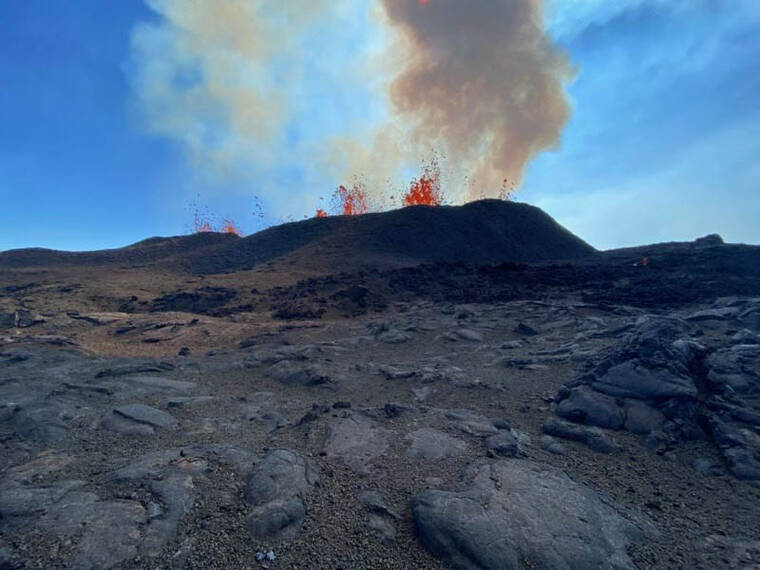A lava flow traveling north toward the Daniel K. Inouye Highway (Saddle Road) has reached relatively flatter ground and slowed down significantly over the past couple of days, as expected, the Hawaiian Volcano Observatory reported Friday.
Over the past 24 hours, the lava flow from Mauna Loa’s fissue 3 has advanced at a rate of about 150 feet per hour (45 meters per hour). As of 7 a.m. Friday, the flow front was about 2.7 miles (4.3 km) from the highway.
Advance rates may be highly variable over the coming days and weeks due to the way lava is emplaced on flat ground. On flat ground, lava flows spread out and inflate. Individual lobes may advance quickly, and then stall. Additional breakouts may occur if lava channels get clogged upslope. There are many variables at play and both the direction and timing of flow advance are expected to change over periods of hours to days, making it difficult to estimate when or if the flow will impact Daniel K. Inouye Highway.
Fissure 3 was the most active along Wednesday along the Northeast Rift Zone eruption of Mauna Loa. Fissure 4 was sluggish, and fissures 1 and 2 are no longer active.
Volcanic gas plumes are lofting high and vertically into the atmosphere before being blown to the west at high altitude, generating vog in areas downwind. Vog information can be found at https://vog.ivhhn.org/. Pele’s hair (strands of volcanic glass) fragments are being wafted great distances and have been reported as far the Mauna Kea Visitor Information Station.
Sulfur dioxide (SO2) emission rates of approximately 180,000 tonnes per day (t/d) were measured on Thurdsay.
Tremor (a signal associated with subsurface fluid movement) continues in the location of the currently active fissures. This indicates that magma is still being supplied to the fissure, and activity is likely to continue as long as we see this signal.
There is no active lava within Moku’aweoweo caldera, and the Southwest Rift Zone is not erupting. The observatory does not expect any eruptive activity outside the Northeast Rift Zone. No property is at risk currently.

